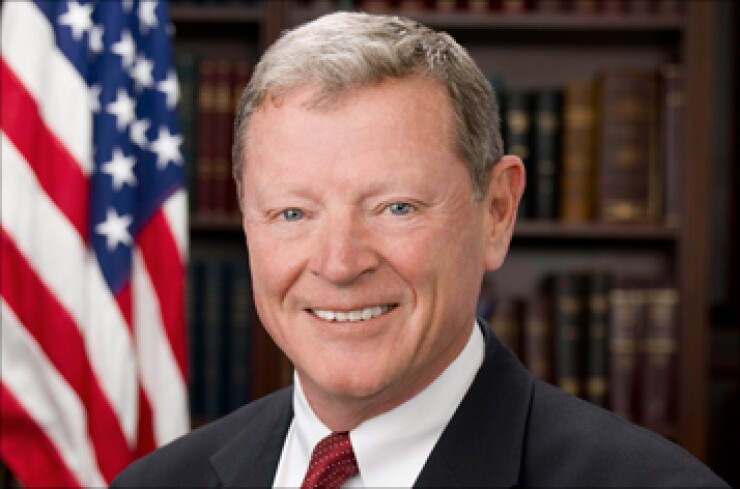
DALLAS — Two key congressional committees are preparing to proceed with the development of long-term transportation bills without President Obama's proposed tax on offshore corporate earnings.
Obama's $478 billion, six-year transportation proposal would be funded with $238 billion from new corporate tax rates on U.S. earnings overseas and $240 billion of gasoline tax revenues.
The president's proposed one-time 14% transition tax on earnings of foreign subsidiaries of U.S.-based corporations would be applied to their estimated $2 trillion of earnings parked in foreign banks and not previously subject to U.S. taxes. U.S. corporations that continue to earn revenue offshore would face a 19% tax. These taxes would apply regardless of whether they earnings were repatriated.
Sens. Barbara Boxer, D-Calif., and Rand Paul, R-Ky. are expected to soon introduce legislation that would tax repatriated offshore earnings, but only if they are returned to the United States within a specified period.
But Sen. James Inhofe, R-Okla., chairman of the Senate Environment and Public Works Committee said on Monday, "The president's budget proposal entangles infrastructure funding with other pet projects that distract from Washington's constitutional responsibility to provide for our nation's roads and bridges."
Inhofe said the committee will focus on reauthorizing the Moving Ahead for Progress in the 21st Century act, the current highway bill that was extended last year through May 31 with an $11 billion infusion of general fund revenue that kept the Highway Trust Fund solvent.
Inhofe has said he is willing to consider an increase in the federal gasoline tax, which he called a form of user fee, to bolster the structurally insolvent HTF. He hinted at a committee hearing last week that he might support the Boxer-Paul tax proposal because "Barbara [Boxer] likes it."
Boxer, who will not run for re-election in 2016, and Paul are collaborating on a corporate tax package that would lower the tax rate on repatriated overseas earnings from the current 35% to 6.5% for five years.
At a Senate Budget Committee hearing on Tuesday, Sen. Bob Corker, R-Tenn., said he was disappointed that the Obama transportation plan relied on one-time revenue from tax reform instead of making structural changes to the funding system. Corker last year proposed a 12-cent increase in the federal tax gas of 18.4 cents per gallon that he said would generate $164 billion over 10 years.
"I'm a little disappointed that you guys took a powder, if you will, on the highway program," he said to Shaun Donovan, director of the Office of Management and Budget, who testified before the committee.
"Instead of solving the infrastructure problem, you all took some easy money," Corker said. "I do wish you'd looked at that in a more serious way and put it on a steady path."
Sen. Orrin Hatch, R-Utah, chairman of the Senate Finance Committee which is charged with finding the revenue to support the Senate version of a multiyear transportation bill, said the president's budget was "partisan, not practical" and is a "nonstarter with Congress."
"Rather than creating a simpler, fairer, more competitive tax system it adds complexity and confusion," Hatch said of the proposed tax reforms.
The House Transportation and Infrastructure Committee will hold its first hearing on reauthorizing MAP-21 on Feb. 11.
Committee chairman Rep. Bill Shuster, R-Pa., said he favors funding transportation with the additional revenues generated by opening up areas on the Atlantic and Pacific coasts to oil and gas production.
The White House remains opposed to increasing the federal gasoline tax to support the 40% increase in transportation infrastructure spending in the president's six-year plan, Obama adviser Jeffrey Zients said at a budget press briefing.
"The president has not proposed and has no plans to propose" a higher gasoline tax, said Zients, chairman of the National Economic Council. Corporate tax reform is "a one-time opportunity to tax the $2 trillion, which has not been taxed, which is overseas, at 14%," he said.
Both Donovan and Treasury Secretary Jack Lew, who was testifying before the House Ways and Means Committee, said the administration is opposed to the idea of a one-time repatriation holiday floated by some Republicans, warning it would incentivize companies to keep money overseas.
Lew, referring to Obama's proposal to create qualified public infrastructure bonds, told committee members, "The need to rebuild our infrastructure is irrefutable, and that's why this budget tackles our infrastructure challenges by creating an extended period of sustained funding for a six-year surface transportation bill, and starting an innovative new bond program that will ignite more public-private partnerships in cities and states across the country."





